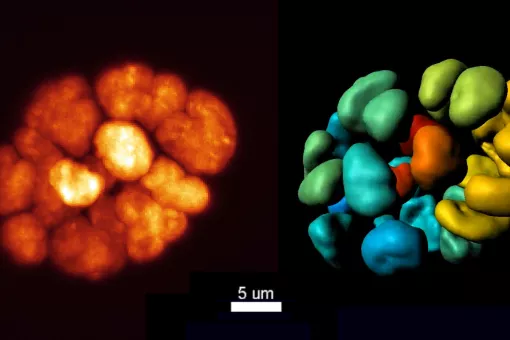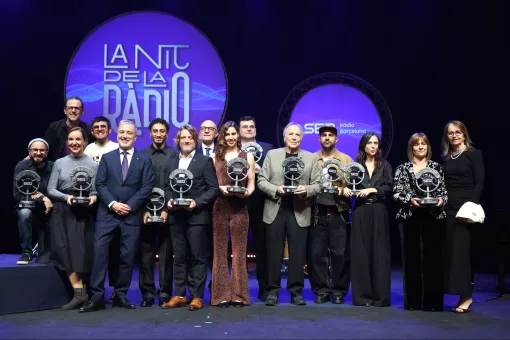Images
Researchers Dario Alessi and Joan Guinovart bring together 150 experts in cancer Metabolism in a Barcelona BioMed Conference, organised by IRB Barcelona and the BBVA Foundation.
Cancer cells grow at a staggering rate, much faster that normal cells do. This growth is due to metabolic changes that allow the cells to generate the nutrients and materials required to promote growth and division. In the last few years, scientists have observed that mutations in oncogenes –the genetic promoters of cancer – and tumour suppressors cause cancer and at the same time stimulate the metabolic signalling pathways in cells. The field of cancer metabolism addresses how these genetic mutations affect metabolism since an understanding of the connection between the two factors would provide crucial information for the development of anticancer agents. “The hope is to interfere in specific metabolic pathways in cancer in order to inhibit cell growth and the spread of tumours without affecting healthy cells”, explains Dario Alessi, professor at the University of Dundee, Scotland, and co-organiser of the XIV Barcelona BioMed Conference, organised by the Institute for Research in Biomedicine (IRB Barcelona) and the BBVA Foundation.
Entitled “Cancer Metabolism”, the conference will bring together 150 international authorities, from 8 to 10 November, to discuss how cells reprogram their metabolism to promote constant growth in unfavourable conditions and whether interference with some metabolic signalling pathways could be used as a therapy for new treatments against cancer. Of the 17 outstanding speakers invited, eleven work in centres of academic and scientific excellence in North America and six in institutions in Europe.
From the Warburg effect in the 1930s to cancer metabolism today
In 1931, the biochemist Otto Warburg reported that most tumours used glucose, through a process called glycolysis, at a much faster rate than healthy cells. This phenomenon, called the Warburg effect, allows cells under constant division to make the materials required, such as nucleic acids, amino acids and lipids, to achieve rapid growth and duplication of the cellular components during division. It was only recently that scientists found that key mutations in many of the genes that cause cancer, such as p53, Ras and Myc, had effects on cancer growth through the metabolic reprogramming of tumour cells. Many of the most prominent international researchers working in cancer focus on revealing the connection between cancer and metabolism.
During the conference, the North American pharmaceutical company Agios will present data on the discovery of a new metabolite that is present in only certain kinds of tumour and that could be used as a target for treatment. According to co-organiser Joan Guinovart, director of IRB Barcelona and an expert in the metabolsim of glycogen, one of the objectives of the BioMed Conference is to explore new ideas on how to develop novel drugs for the prevention and treatment of cancer. “Many companies are currently actively working in this field and it is hoped that several molecules involved in metabolic signalling pathways will enter clinical phases in the near future”, explains Guinovart.
Among the speakers presenting results at the conference is Lewis C. Cantley, from the Harvard Medical School of Boston, United Sates. In recent years, Cantley has discovered new connections between the metabolic regulation of cells and the oncogene transformation. Cantley is one of the researchers who have contributed most to rekindling the relevance of the Warburg effect in the appearance and development of cancer, making the field of cancer metabolism one of the most active worldwide.
About IRB Barcelona
The Institute for Research in Biomedicine (IRB Barcelona) pursues a society free of disease. To this end, it conducts multidisciplinary research of excellence to cure cancer and other diseases linked to ageing. It establishes technology transfer agreements with the pharmaceutical industry and major hospitals to bring research results closer to society, and organises a range of science outreach activities to engage the public in an open dialogue. IRB Barcelona is an international centre that hosts 400 researchers and more than 30 nationalities. Recognised as a Severo Ochoa Centre of Excellence since 2011, IRB Barcelona is a CERCA centre and member of the Barcelona Institute of Science and Technology (BIST).





